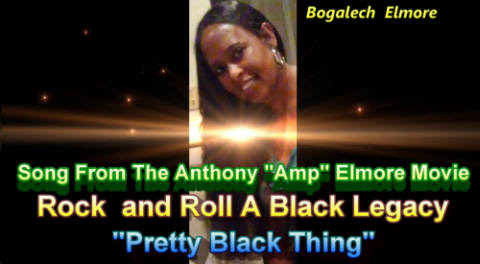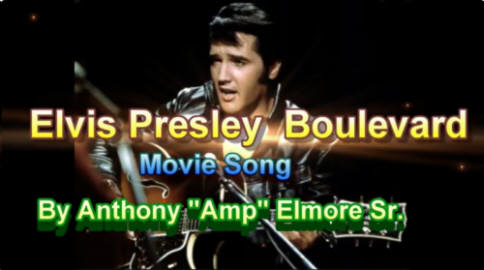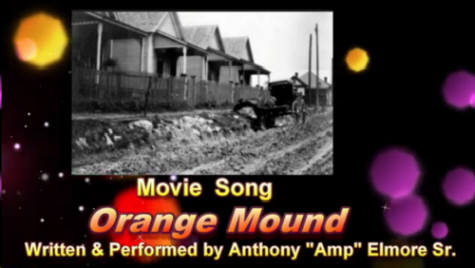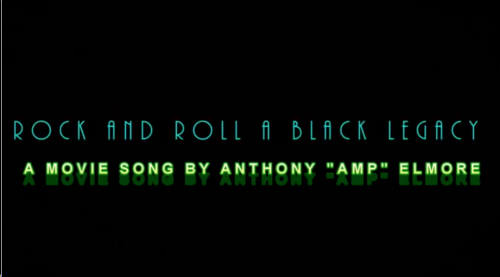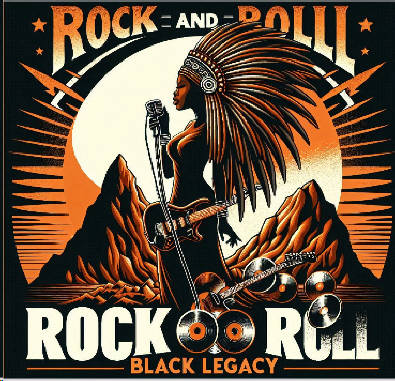
Title: “Empowering Black Filmmakers: The Legacy of ‘Rock and Roll’ in Memphis”
In the heart of Memphis, where the rhythm of life pulses through the streets, Anthony “Amp” Elmore, a passionate Black filmmaker, is weaving a new narrative—one that celebrates talent, creativity, and community. His vision extends beyond the glitz of Hollywood; it’s rooted in the vibrant soil of Memphis, where history, culture, and resilience converge.
The Birth of a Soundtrack
Elmore, known for his work on the upcoming film “Rock and Roll: A Black Legacy,” isn’t just a filmmaker; he’s a storyteller. His words resonate with authenticity, drawing listeners into a world where music and film collide. But it was a chance encounter with a young arranger named Wallen Bobo that transformed Elmore’s vision.
Bobo, a Memphis musician, specialized in crafting “Rap Beats.” When Elmore shared his movie songs—lyrics humming in the air—Bobo’s ears perked up. With modern technology at their fingertips, they embarked on a creative journey. Bobo took Elmore’s melodies and wove them into full-fledged songs, each note a testament to Memphis’s rich musical heritage.
In the heart of Memphis, where the rhythm of life pulses through the streets, Anthony “Amp” Elmore, a passionate Black filmmaker, is weaving a new narrative—one that celebrates talent, creativity, and community. His vision extends beyond the glitz of Hollywood; it’s rooted in the vibrant soil of Memphis, where history, culture, and resilience converge.
The Birth of a Soundtrack
Elmore, known for his work on the upcoming film “Rock and Roll: A Black Legacy,” isn’t just a filmmaker; he’s a storyteller. His words resonate with authenticity, drawing listeners into a world where music and film collide. But it was a chance encounter with a young arranger named Wallen Bobo that transformed Elmore’s vision.
Bobo, a Memphis musician, specialized in crafting “Rap Beats.” When Elmore shared his movie songs—lyrics humming in the air—Bobo’s ears perked up. With modern technology at their fingertips, they embarked on a creative journey. Bobo took Elmore’s melodies and wove them into full-fledged songs, each note a testament to Memphis’s rich musical heritage.
New Era of Filmmaking
Elmore recognizes that the landscape of filmmaking has shifted. No longer bound by Hollywood budgets, today’s artists wield synthesizers and digital tools to score entire movies. It’s a 21st-century culture—one where creativity knows no bounds. Elmore envisions a Memphis where Black talent thrives, where filmmakers emerge from the vibrant streets of Orange Mound.
Challenging the Status Quo
But obstacles remain. Linn Sitler, the Memphis Film Commissioner, has perpetuated a divide. Her support seems reserved for white films and filmmakers, leaving Black creatives on the margins.
Elmore calls for change—a dismantling of racism, a rejection of white supremacy, and an embrace of inclusivity. He appeals to Memphis Mayor Paul Young, urging him to champion a film culture that uplifts all voices.
“Rock and Roll: A Black Legacy”
As Elmore’s film takes shape, viewers are invited to witness the magic. The movie songs, born from collaboration and passion, echo the heartbeat of Memphis. They tell stories of struggle, resilience, and triumph—the very essence of Black culture. Elmore’s legacy isn’t just about entertainment; it’s about empowerment.
Elmore recognizes that the landscape of filmmaking has shifted. No longer bound by Hollywood budgets, today’s artists wield synthesizers and digital tools to score entire movies. It’s a 21st-century culture—one where creativity knows no bounds. Elmore envisions a Memphis where Black talent thrives, where filmmakers emerge from the vibrant streets of Orange Mound.
Challenging the Status Quo
But obstacles remain. Linn Sitler, the Memphis Film Commissioner, has perpetuated a divide. Her support seems reserved for white films and filmmakers, leaving Black creatives on the margins.
Elmore calls for change—a dismantling of racism, a rejection of white supremacy, and an embrace of inclusivity. He appeals to Memphis Mayor Paul Young, urging him to champion a film culture that uplifts all voices.
“Rock and Roll: A Black Legacy”
As Elmore’s film takes shape, viewers are invited to witness the magic. The movie songs, born from collaboration and passion, echo the heartbeat of Memphis. They tell stories of struggle, resilience, and triumph—the very essence of Black culture. Elmore’s legacy isn’t just about entertainment; it’s about empowerment.
“Linn Sitler, after receiving $5 million for the failed NBC series ‘Bluff City Law,’ looked down upon us tax-paying Black people. She deemed us unworthy of support from the Memphis Shelby County Film Commission for Black films and Black filmmakers. Despite our lack of Hollywood film budgets, she turned up her nose and refused to come to Orange Mound to arrange a news conference. It’s disheartening to see such bias against Black creatives.”
Anthony “Amp” Elmore’s impassioned plea to Memphis Mayor Paul Young resonates deeply. He courageously called for the dismantling of the Memphis Shelby County Film Commission’s biased practices, advocating for an inclusive environment that uplifts Black films and filmmakers. With Memphis boasting a 70% African American population, Elmore rightly emphasized the need to celebrate diversity by supporting Black creators alongside their White counterparts.
Linn Siter and the Film Commission hold a pivotal role in shaping Memphis’s cinematic landscape. Their recognition of the value inherent in all voices—regardless of race—will determine the city’s cultural legacy. Let us hope that Elmore’s call for change reverberates and leads to a more equitable and vibrant film industry in Memphis.
Linn Siter and the Film Commission hold a pivotal role in shaping Memphis’s cinematic landscape. Their recognition of the value inherent in all voices—regardless of race—will determine the city’s cultural legacy. Let us hope that Elmore’s call for change reverberates and leads to a more equitable and vibrant film industry in Memphis.
